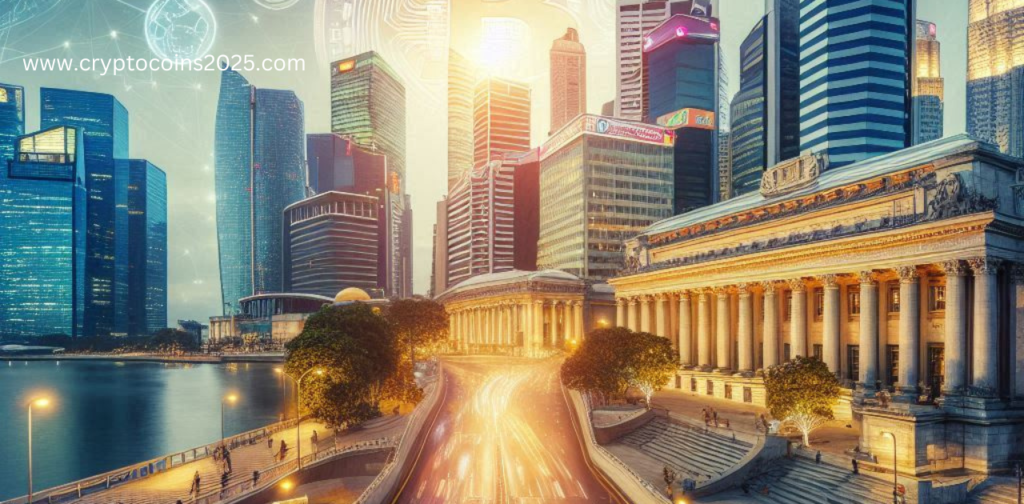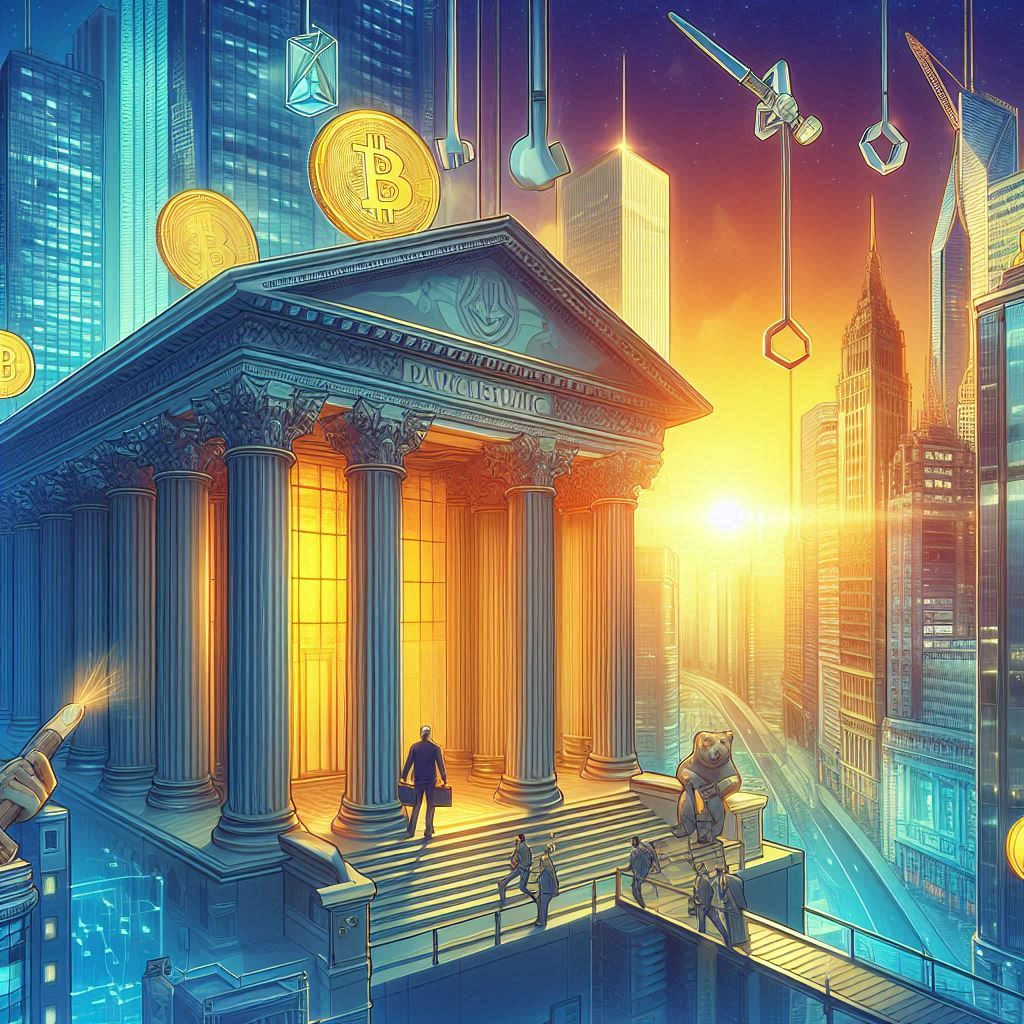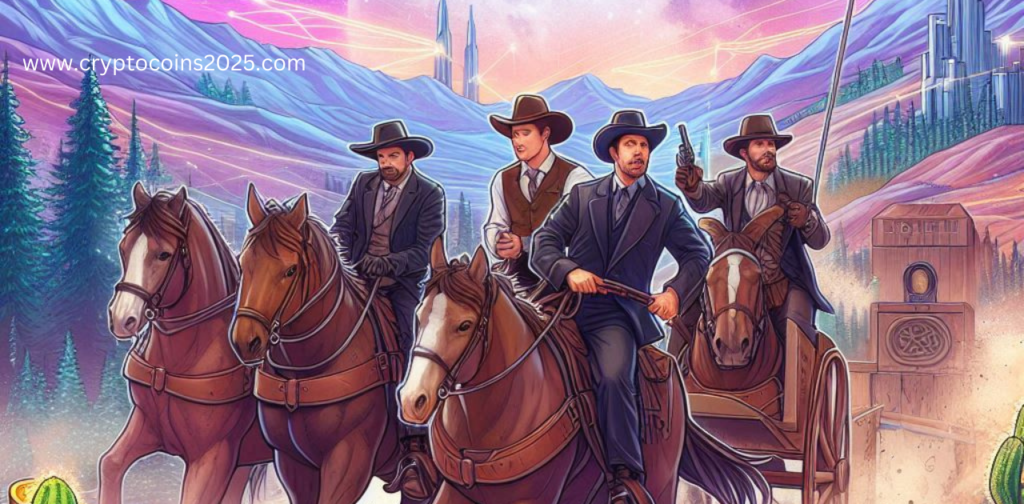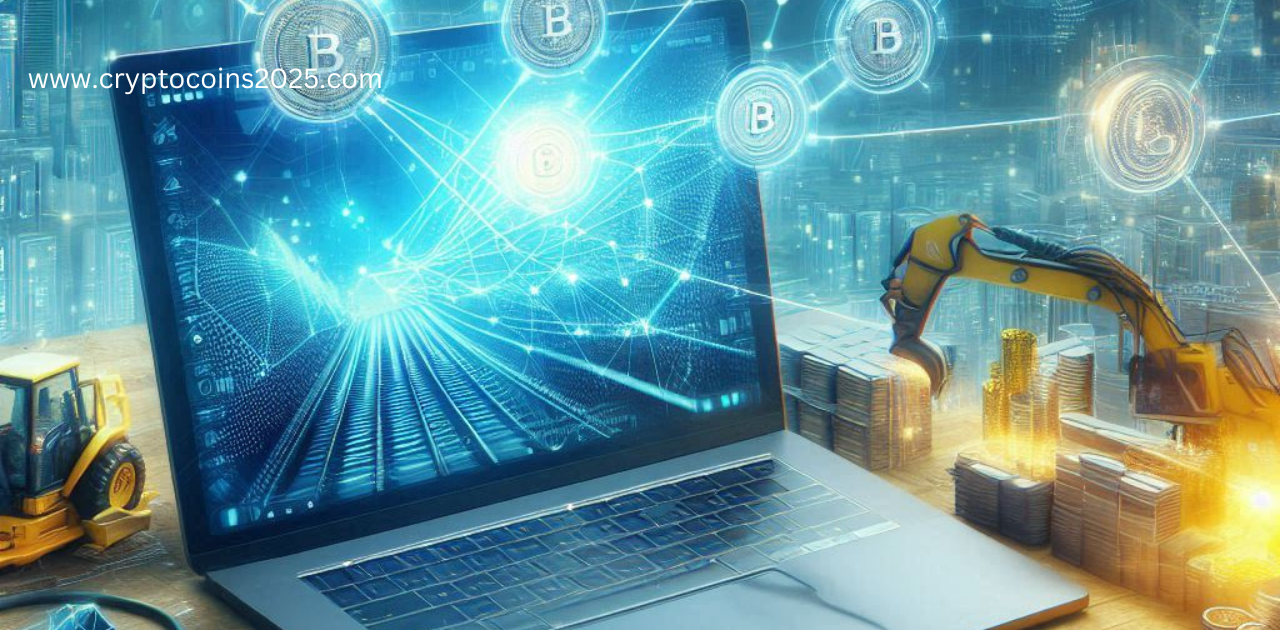Contents
Connecting the physical and the digital: Tokenization creates a new era for real-world assets
The financial world is on the verge of a paradigm shift with the emergence of tokenization. This innovative process involves converting ownership of real-world assets – from real estate and artwork to commodities and even intellectual property – into digital tokens on a blockchain. This unlocks a new asset class that has immense potential to revolutionize the way we invest, trade and manage ownership.
Unlocking liquidity with digital ownership

Traditional ownership of real-world assets is often characterized by limited liquidity, high transaction costs and restricted access for smaller investors. Tokenization disrupts this status quo by:
- Fractional ownership: Assets can be fractionalized into smaller, tradable tokens, allowing for greater access and participation in the market.
- 24/7 global marketplace: Blockchain-based token trading can take place around the clock, across geographic boundaries, increasing liquidity.
- Reduced transaction costs: Smart contracts automate tasks and eliminate intermediaries, thereby streamlining transactions and reducing costs.
- Increased transparency and security: Blockchain technology provides a secure and immutable record of ownership, which promotes trust and transparency in asset transfers.
Table: Traditional vs. tokenized ownership of real-world assets
| Attribute | Traditional ownership | Tokenized ownership |
|---|---|---|
| Liquidity | Limited, often illiquid assets | High liquidity through fractional ownership and global markets |
| Accessibility | Limited to high-net-worth individuals or institutions | Open to a wide range of investors with low entry points |
| Transaction costs | High fees associated with intermediaries and paperwork | Lower costs through automation and smart contracts |
| Transparency | Records can be opaque and susceptible to manipulation | Secure and transparent record of ownership on the blockchain |
A World of Opportunities: Tokenized Assets in Action

The potential applications of tokenized real-world assets are very broad and span across a variety of industries:
- Real estate: Fractional ownership of properties can unlock investment opportunities in prime locations for small investors.
- Fine art and collectibles: Secure and efficient trading of high-value artwork and collectibles with verifiable provenance.
- Supply chain management: Tokenization can track the movement of goods and ownership in the supply chain, increasing transparency and efficiency.
- Intellectual property: Secure ownership and licensing of patents, trademarks and copyrights through tokenization.
While tokenization presents exciting possibilities, some challenges need to be addressed:
- Regulation: Clear regulatory frameworks around tokenized assets are still evolving, creating uncertainty for some investors.
- Valuation and risk assessment: Tokenized assets may require the adoption of traditional valuation methods, and careful consideration of risk assessment is needed.
- Technological infrastructure: The scalability and user-friendliness of blockchain technology needs to be improved for tokenized assets to be widely adopted.
FAQs on tokenized real-world assets
- What are the risks associated with tokenized assets?
Like any investment, there are risks involved. These include market volatility, smart contract vulnerabilities, and potential regulatory hurdles.
- How do I invest in tokenized assets?
Emerging platforms are facilitating investments in tokenized assets. Do thorough research on the asset and the platform before investing.
- Will tokenization completely replace traditional asset ownership?
Tokenization is likely to become a complementary option, offering a new way to invest and asset management alongside traditional methods.
The tokenization of real-world assets is a pivotal moment in financial history. By unlocking liquidity, increasing transparency and democratizing access, tokenization has the potential to create a more inclusive and efficient investment landscape. As the technology matures and regulatory frameworks adapt, we can expect tokenized assets to become a cornerstone of the future of finance.

